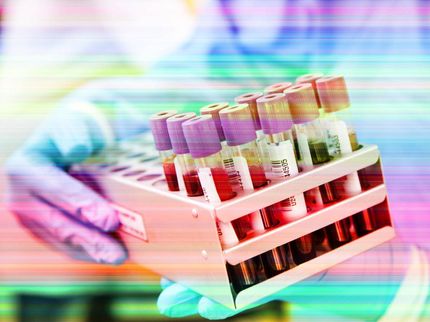3-D pancreatic cancer organoid may help predict clinical responses, personalize treatments
The development of a new method to grow three-dimensional organoid cultures of pancreatic tumors directly from patients' surgical tissue offers a promising opportunity for testing targeted therapies and drug responses and personalizing treatments in a rapid, cost-effective manner.
"These 3D organoids are, essentially, 'mini tumors' in a culture dish," explains the study's corresponding author Senthil Muthuswamy, PhD, Director of the Cell Biology Program in the Cancer Research Institute at Beth Israel Deaconess Medical Center (BIDMC) and Visiting Professor at Harvard Medical School. "The organoids have the same properties or traits that are seen in the patient tumor from which they came and, therefore, can serve as an innovative platform for both cancer research and for cancer treatment."
Scientists have been growing cells in 3D culture for decades. These models are used to help understand various biological processes such as tissue development and cancer growth, and Muthuswamy's laboratory has spent the past 15 years growing normal and cancer-derived cells from human breast tissue as 3D organoids.
This new paper provides an innovative new direction for this technology. "We have now developed a new methodology to grow human pancreatic tumor cells from surgical tissues and have demonstrated that these tumor organoids recreate both morphology and biology of the cancer tissue in the patient," says Muthuswamy, who conducted this research while at the University of Toronto. The research team also demonstrated that these clonally derived organoids could be used to identify patient-specific sensitivities to novel therapeutic agents.
"From a research point of view, this organoid approach now provides us with a 'live' biobank of tissue for discovery and validation of new drugs and targets and modeling resistance to therapy," says Muthuswamy. "By using a cohort of patient samples from which we can screen for drugs and mutations, we can begin to understand why some patients respond to a treatment while others do not, and can thereby avoid giving patients unnecessary or ineffective treatments. And from a clinical point of view, this approach could help assist patients and their oncologists in making treatment decisions."
"Pancreatic cancer is a terrible disease," said Pier Paolo Pandolfi, MD, PhD, Director of the BIDMC Cancer Center. "Patients diagnosed with locally advanced or metastatic pancreatic cancer have a survival rate of less than three percent. Early detection methods and new treatment strategies are desperately needed. These new pancreatic progenitor organoids and tumor organoids can be used to model pancreatic cancer and for drug screening to identify precision therapy strategies."
Original publication
Other news from the department science

Get the life science industry in your inbox
By submitting this form you agree that LUMITOS AG will send you the newsletter(s) selected above by email. Your data will not be passed on to third parties. Your data will be stored and processed in accordance with our data protection regulations. LUMITOS may contact you by email for the purpose of advertising or market and opinion surveys. You can revoke your consent at any time without giving reasons to LUMITOS AG, Ernst-Augustin-Str. 2, 12489 Berlin, Germany or by e-mail at revoke@lumitos.com with effect for the future. In addition, each email contains a link to unsubscribe from the corresponding newsletter.


















































